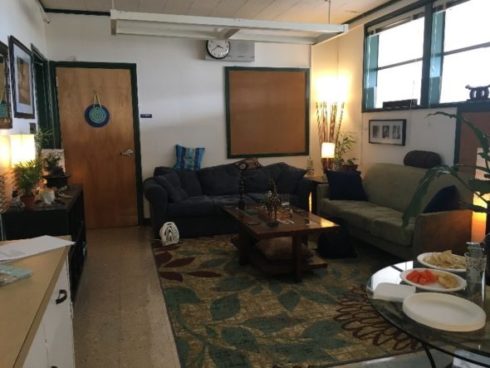Staff wellness is foundational to trauma-informed schools because it creates a context where staff are equipped to manage stress and overwhelm. Both education and healthcare career paths carry a lot of stress and involve caring for the wellbeing of students.
Trauma-informed schools recognize that adult wellbeing is a necessary component for student wellbeing. SBHCs can help school systems develop communities that value wellness and supportive relationships.
Incorporating teacher perspective in building staff wellness is a key component as staff know what is and is not working. Having staff feedback inform decisions, allows them to be a part of the process, which increases participation.
Below are formal assessments that staff can complete. It is also a possibility to create more informal assessments that address specific school site questions.
Wellness has different components. It can be helpful to differentiate between self-soothing and self-care.
Self-soothing is what people do in order to provide comfort to themselves and help to regulate themselves during stressful and overwhelming times. This is a very important part of self-care and necessary to be able to create safe and stable relationships with students.
Self-care practice is what people do to maintain their mental health, stay grounded and connected to themselves, and support their growth. These practices can be intertwined and both are important for wellbeing.
SBHCs can host Teacher Wellness Days with self-soothing activities:
- Massage stations at wellness events
- Staff yoga classes
- Goodie bags with soothing treats such as tea and chapstick
- Fresh flowers for teachers on wellness days
SBHC staff can support educators’ self-care by helping them to create their own wellness programs and finding ways educators can commit to their own wellbeing.
Some SBHCs offer raffle incentives to educators who participate in wellness activities for themselves 30 minutes a day. The wellness activity is determined by the educator and can include mindfulness practice, taking a walk, eating a healthy lunch, drinking enough water, or reaching out to a colleague for help. The raffle incentivizes staff creating healthy rituals and building consistent self-care habits.
Healing Centered Staff Development Curriculum – CSHA Curriculum
SBHCs can use this curriculum to train educators and health care providers in trauma-informed and healing-centered care.
Shelter in Grace: A Guide to Support Staff Wellness – CSHA Toolkit
Self Care During Our Current Pandemics – CSHA Webinar
Ready, Set, Rise! Building Resilient Communities – Alliance for a Healthier Generation
Creating a Healthier Life: A Step by Step Guide to Wellness – SAMHSA
Practices to Increase Resilience – Dovetail Learning
Trauma-informed work is relational at its core and community care speaks to the importance of supportive adult relationships. SBHC staff can help to build resilient communities by helping to nurture connectedness amongst staff. Having a more resilience-centered staff includes having supportive and connected relationships on campus and a community of care for one another.
Some ways to increase community care include creating intentional spaces for staff to support one another, attune to each other’s emotional states, and increase connectedness.
Teacher affinity groups where staff meet on a consistent basis according to parts of their identity with the intention of supporting one another.
Healing centered support groups to allow staff time to learn and reflect on how their stress responses show up in the classroom and give them tools to recognize when they are stressed and how they can support themselves and one another.
Wellness groups where staff meet consistently to check in on one another’s wellbeing and create accountability plans with each other.
Creating space for gratitude and appreciations through a visual wall or digital communication.
Herd Immunity: Exploring Collective Care – CSHA webinar
Creating a School-Wide Culture of Wellness – National School-Based Health Alliance online toolkit
The Unspoken Complexity of Self Care – Article by Deanna Zandt
| Hire a wellness consultant to meet with teachers regarding their wellness and provide consultation. This person works with staff to create tailored wellness plans and encourages follow through on staff commitments. The staff member runs mini professional developments on vicarious trauma and burnout and how to have trauma-informed classrooms. Teachers get support for themselves to be more present for their students’ needs and move from a punitive discipline to a more trauma-informed approach. |
| SBHC staff can support the revamp of staff lounge spaces with color conscious design and comfortable furniture to create a space that feels calming. Provide access to drinking water, healthy snacks, and tea to help increase staff sense of wellbeing. This creates the space for staff to recharge and connect with themselves and one another. |
| Have staff administer the ProQOL measure to teachers. SBHC staff can identify a training to address what is found, such as the Life Space Crisis Intervention, and offer it as a professional development opportunity. |




